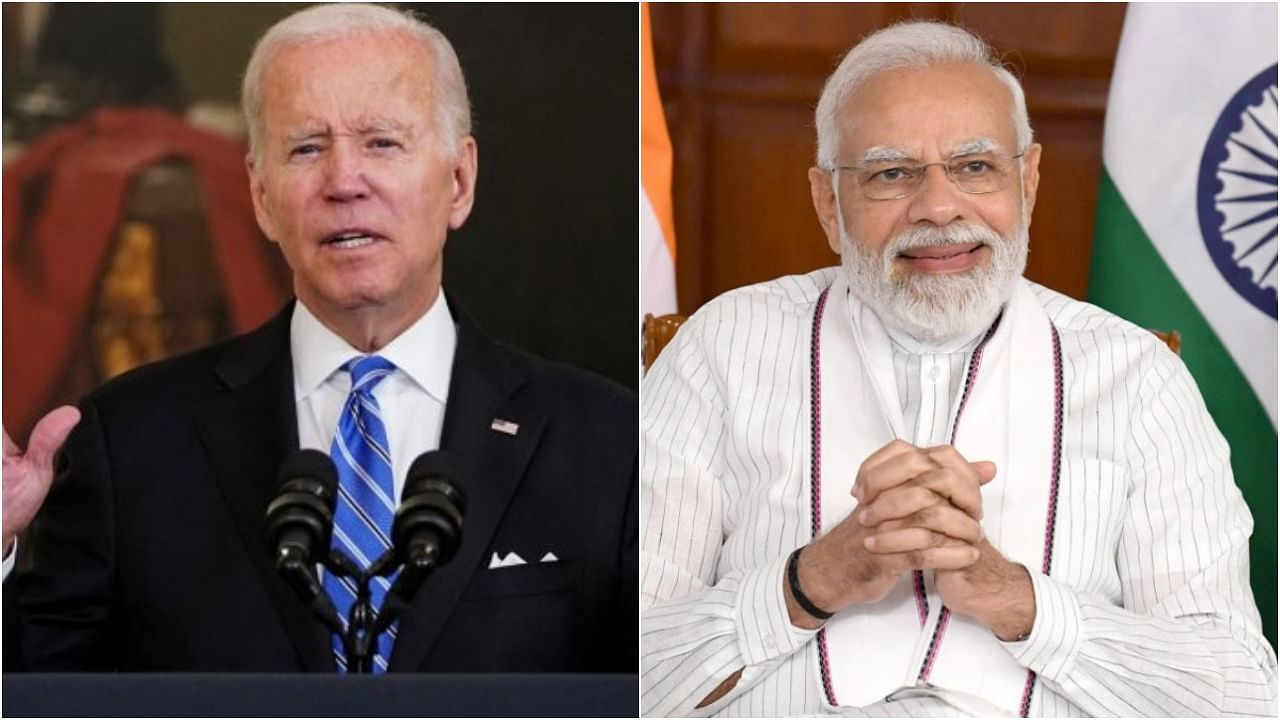
By Mihir Sharma
Joe Biden has a familiar list of US partners and allies to woo and admonish on his current trip to the Middle East: Israel, Egypt, Saudi Arabia, Jordan and the Gulf emirates. But there’s a new dance partner on his schedule he’d be wise not to ignore: India.
On Thursday, Biden will hold a virtual “I2U2” summit with Israel, India and the United Arab Emirates. This new grouping was formed last October when the four countries’ foreign ministers met in Israel and was promptly christened the “West Asian Quad” by the Indian press. Its importance has now been kicked up a notch by a leaders’ meeting.
What makes the confab worth squeezing onto the US president’s already crowded agenda? For the United States, incorporating India as a stable eastern pole in its web of West Asian partnerships would be a big plus. Pre-Independence India was a crucial security provider for the region. The country has high and increasing economic stakes in West Asia, upon which it depends for energy and for remittances. Over time, Washington would like to see New Delhi match those interests with a commitment of resources.
Indian enthusiasm is more unexpected, given that it has traditionally sought to build up bilateral relationships with West Asian countries while remaining aloof from any joint projects. That suited India’s conception of strategic autonomy, ensuring that the region’s apparently intractable rivalries did not limit its room to maneuver. In different ways, Israel, Iran and Saudi Arabia all became important in India’s security calculations.
But India’s studied distance from multinational partnerships in West Asia also reflected distrust of the US role in the region. Leftists in India saw the United States as biased against the Arab world; the right saw it as over-trusting of the Pakistani military. Over the past few years, however, as Pakistan’s star has dimmed in Washington and Israel has grown closer to US (and Indian) partners in the Gulf, India has had fewer reasons for isolation.
That does not mean it trusts the US, however — and with good reason. Indian policy makers saw the unilateral withdrawal from Afghanistan as a betrayal, for example. At the same time, the debacle may also have convinced them that West Asia needs a more robust security architecture that does not depend entirely on the whims of a US president.
Yet another Indian concern about US reliability has to do with oil supplies — also at the top of Biden’s to-do list this week. India has been reluctant to sign up to Western sanctions on Russian oil. Its foreign minister has pointed out that, in deference to the US, India has in the past agreed to cut down on oil imports from Venezuela and Iran without gaining much, either in terms of energy security or even a voice in energy supply decisions or regional security. Meanwhile, China has happily snapped up Iranian oil at a convenient discount.
If this quadrilateral grouping is to work out the way the US would like, then India’s legitimate concerns about returning Iran to the mainstream, and getting a fair deal on West Asian oil, will have to be taken into consideration. The Indo-Pacific Quad is divided over Russia; the West Asian Quad over Iran. From India’s point of view, restoring the Iran deal to its original status as a pure arms control agreement, free of geopolitical trimmings such as sanctions on the Islamic Revolutionary Guard Corps, is essential. In the past, Indian policy makers have quietly marketed the benefits of the deal to their interlocutors in Tehran; they would do so again, if convinced of the benefits.
The West Asian Quad doesn’t have the glue of shared concerns over China the way the Indo-Pacific Quad does. But it has the potential to be as transformative, particularly for India’s role in the region as the US tries to scale down its involvement. And the glue in the West Asian Quad isn’t the US. India’s partnership with both Israel and the United Arab Emirates — the latter country being the closest thing that New Delhi has to an ally — will grow stronger over time regardless of who else is involved.
The new India will thus play a key role in multinational West Asian partnerships with or without the US. But things will go far better for everyone if it’s the former, not the latter.